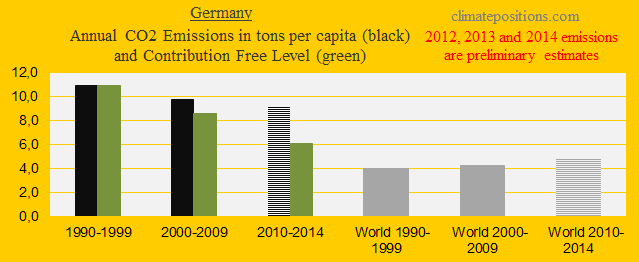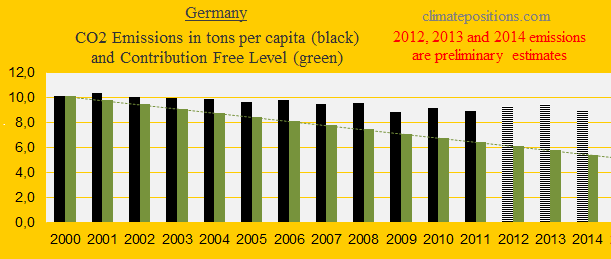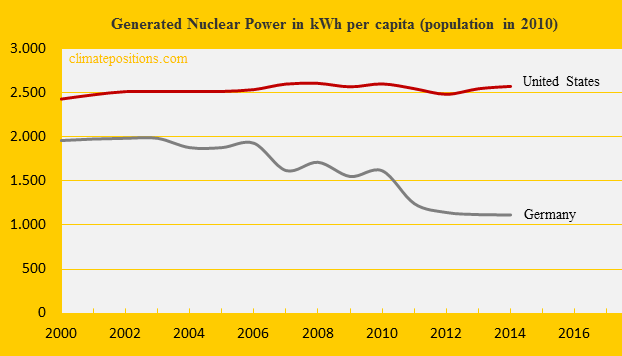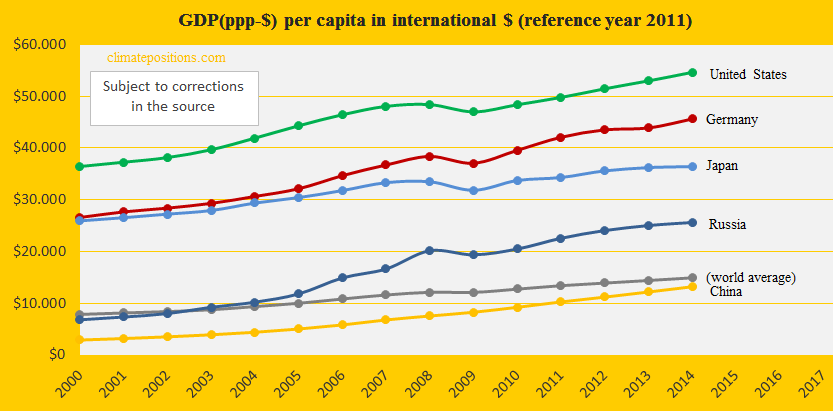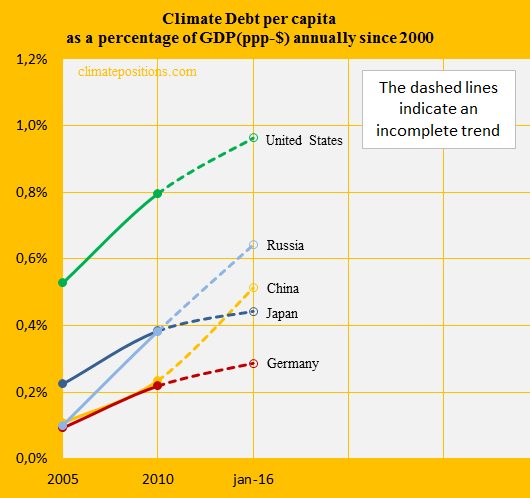Climate Debt of Germany & the European Union … versus the United States, China, Japan and Russia
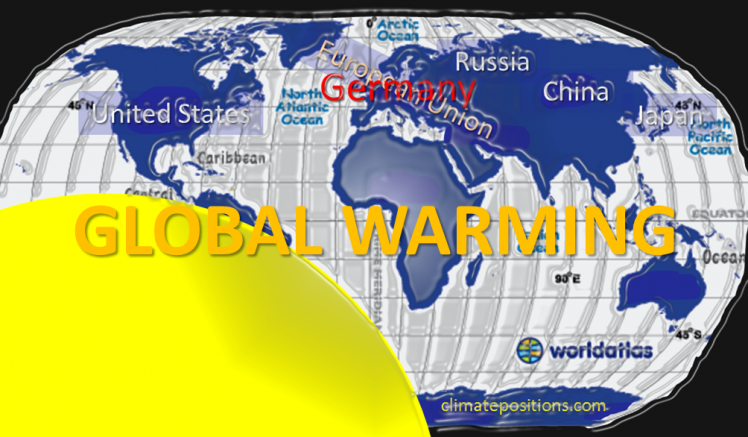
The Climate Debt of ‘the 28 member states of the European Union (EU-28)’, China, the United States, Japan and Russia, combined, amounts to nearly 70% of the world’s total Climate Debt of around $5,700 billion. The following compares 1) EU-28 with the four countries, 2) Germany with EU-28, and 3) Germany with the four other countries.
The table below shows the per capita Climate Debt, the total Climate Debt and the share of the global Climate Debt, of EU-28¹, China, the United States, Japan and Russia. Rankings of 148 countries by 2010 and January 2016 (preliminary estimates) are available in the menu “Climate Debt”.
| . | Per capita | Total Climate | Share of global |
| . | Climate Debt | Debt in billion | Climate Debt |
| . | . | . | . |
| United States | $6,542 | $2,086 | 37% |
| Japan | $2,115 | $269 | 5% |
| Russia | $1,531 | $220 | 4% |
| EU-28 | $1,266 | $643 | 11% |
| China | $550 | $751 | 13% |
Germany’s per capita Climate Debt amounts to $1.556, which is 23% higher than EU-28 as a whole. The total German Climate Debt amounts to $126 billion, or 20% of the one of EU-28 as a whole and by far the largest Climate Debt among the 28 EU-countries.
The first diagram shows Germany’s per capita CO2 Emissions from fossil fuels (without bunker fuels) and cement production in decades in comparison with the world average. CO2 Emissions since 2012 are preliminary estimates. The green bars are the Contribution Free Level, determined by the level of CO2 Emissions in the 1990s and a number of continuously updated ‘Indicators’. The German reductions since 1990s are much too slow.
The diagram below shows the per capita CO2 Emissions from fossil fuels (without bunker fuels) and cement production since 2000. CO2 Emissions in 2012, 2013 and 2014 are preliminary estimates. The average emissions between 2010 and 2014 (preliminary) were 4% higher than in 2009.
In 2006 Germany was the world’s 4th largest Nuclear Power generator (after the United States and France) and in 2014 it was 7th (surpassed by Russia, South Korea, China and Canada). The diagram below shows the German per capita generation since 2000 in comparison with the United States.
In ClimatePositions Nuclear Power generation must be reduced at the same rate as CO2 Emissions from fossil fuels and cement production, because dangerous radioactive nuclear waste is left to deal with for hundreds of future generations.
The diagram below shows the development of GDP(ppp-$) since 2000, in comparison with the United States, Japan, Russia, China and the world average.
By January 2016 Germany’s Climate Debt as share of the GDP(ppp-$), annually since 2000, was 0.29% and the ‘Ranking’ was 39th, which was the same ranking as in 2010. The diagram shows the performance since 2005 along with the same group of countries.
.
¹Climate Debts of Luxembourg ($12.505 per capita) and Malta ($862 per capita) are calculated with ‘Indicator’ values of Ecological Footprint set at Belgium and Italian values, respectively.
A hypothetical example: Had Germany shout down Nuclear Power generation completely in 2000, then the current Climate Debt would have been reduced by 25%, and the ‘Ranking’ would have improved from 26th to 34th.
.
Data on carbon emissions (CO2 Emissions) from fossil fuels (without bunkers) and cement production are from Global Carbon Project (CDIAC); (links in the menu “Calculations”).
Data on national Nuclear Power generation: World Nuclear Association (links in the menu “Calculations”).
Information on national GDP(ppp-$) per capita: Worldbank (links in the menu “Calculations”).
Updated data and diagrams of all ‘Indicators’ and all countries in ClimatePositions are available in the menu ‘Calculations (Excel)’.
PowerPoint collage by Claus Andersen, 2016.
Comments are closed.
